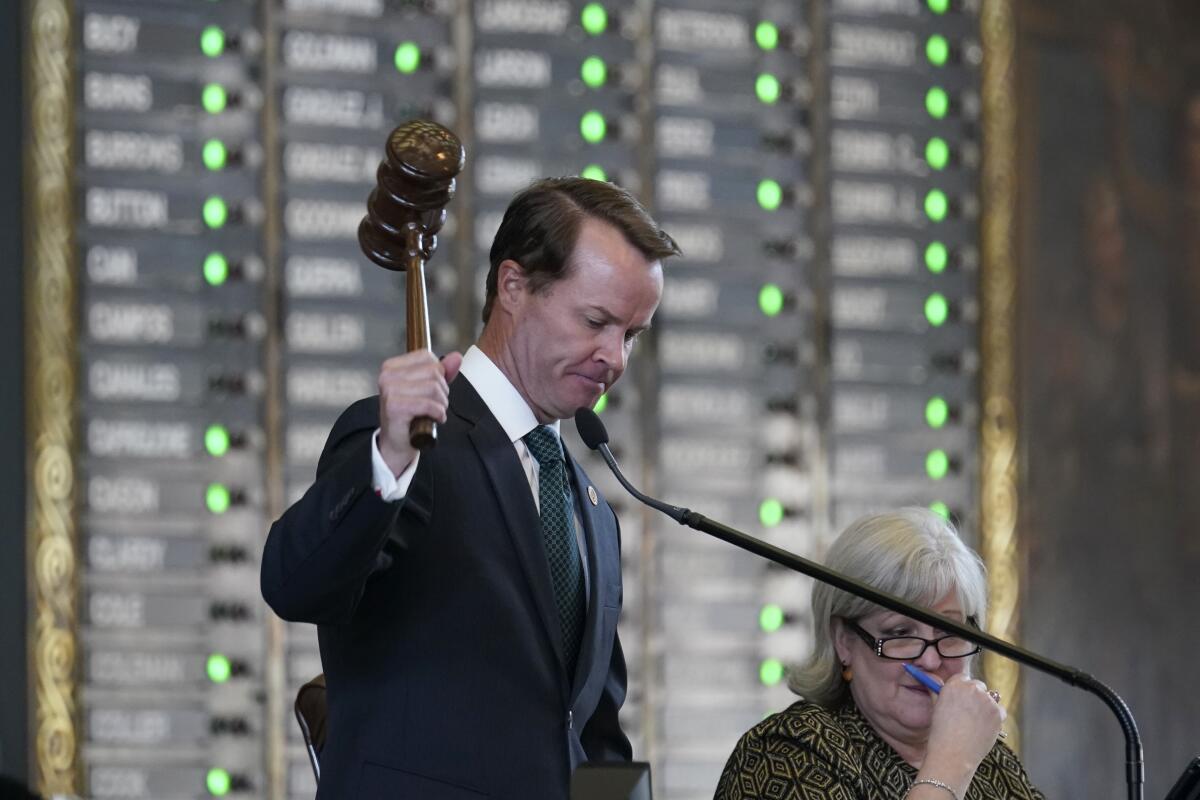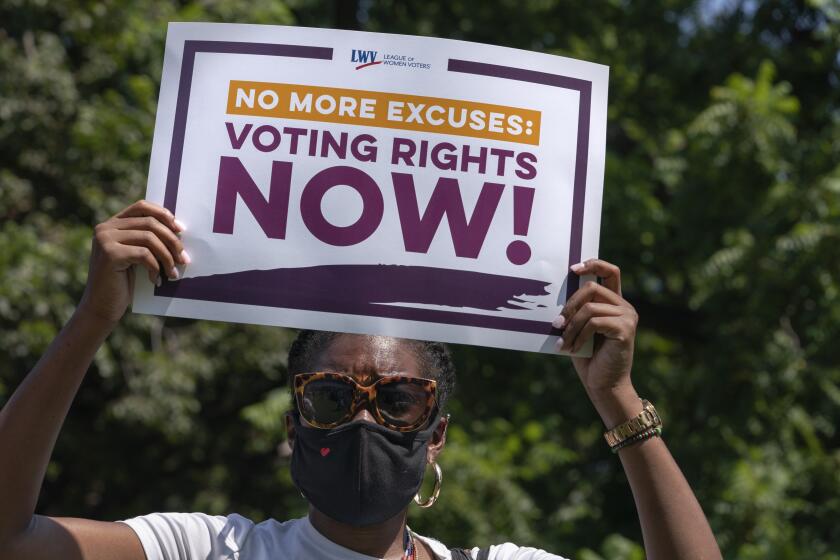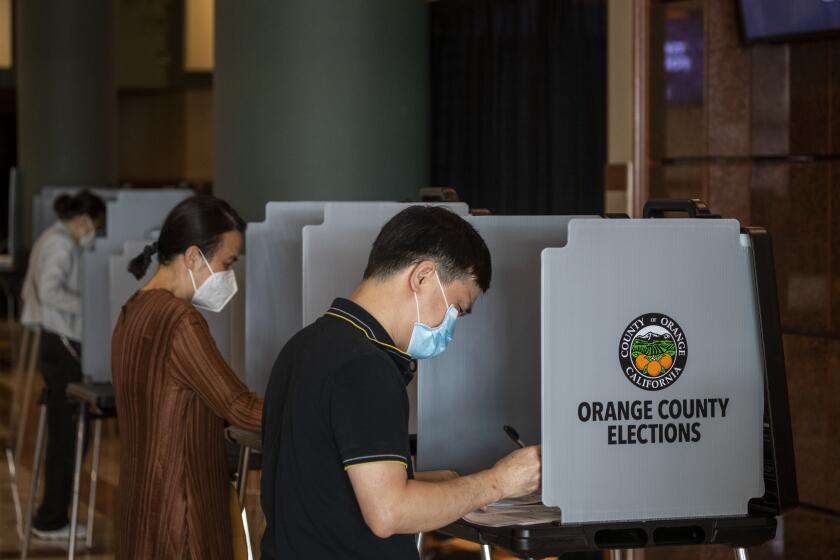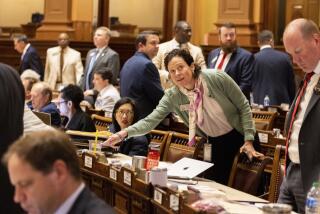Texas GOP advances bill on voting restrictions after Democrats’ holdout ends

- Share via
AUSTIN, Texas — Texas Republicans advanced new voting restrictions Thursday night after months of protests by Democratic legislators, who after returning from a 38-day walkout are now all but out of ways to stop a bill that would ban drive-through voting and empower partisan poll watchers.
The nearly 50-page bill passed the Texas House on a 79-37 mostly party-line vote, moving fast a week after Democrats ended their holdout. Republican Gov. Greg Abbott says he will sign the measure, which is on track to reach his desk in early September, if not sooner.
In what was the GOP’s third try at passing the bill since May, the atmosphere was charged. For more than 12 hours, Republicans defended the changes as election safeguards, while Democrats, who unsuccessfully tried to amend the bill, continued to say it would disproportionately harm people of color. At one point, Republican House Speaker Dade Phelan interrupted lawmakers to tell them not to accuse one another of racism — or even say the word.
In the end, the bill easily passed the Republican-dominated chamber, just as Democrats knew it would once they returned.
Texas is now set to become the latest big GOP state to pass tighter voting laws driven by former President Trump’s false claims that the 2020 election was stolen. When one exchange Thursday turned to the violent Jan. 6 assault on the U.S. Capitol, Republican Kyle Biedermann, who was in Washington that day, downplayed the attack and rejected the description of it as an insurrection.
In seeking to stop the bill, more than 50 Democrats had gone to Washington to prevent a quorum at home and to press Congress on voting rights legislation. On Wednesday, the U.S. House passed federal voting rights legislation that congressional Democrats say would help beat back the voting restrictions advanced in states such as Texas. But Democrats do not have the votes to overcome opposition from Senate Republicans.
House Democrats passed legislation that would strengthen a landmark civil rights-era voting law weakened by the Supreme Court over the last decade.
“As much as you might decry our need to go to Washington, I really beg for federal protection,” said Texas state Rep. Rafael Anchía, a Democrat.
Some Republicans did not hide their frustration with Democrats’ refusal to return until now.
“I think you could care a little more, and should have been here,” J.M. Lozano said during one exchange with Anchía.
The bill now goes back to the state Senate, which already signed off on a similar version this month after a 15-hour filibuster by Democrat Carol Alvarado.
Democrats are set to consider two voting-rights bills: the sweeping For the People Act and the narrower John Lewis Voting Rights Act.
Democrats have virtually no legislative means left to stop the bill, which includes a raft of changes to the state’s election code that would make it harder to cast a ballot in Texas.
Among other changes, it prohibits drive-through voting and threatens local elections officials with felony charges if they send mail-in voting applications to voters who haven’t requested them. Many of the provisions take aim at Harris County — which includes Houston and is a major Democratic stronghold — after leaders there expanded ways to vote during the COVID-19 pandemic.
It also states that poll watchers, who are appointed by campaigns and political parties, cannot be denied “free movement” and makes it a crime for election judges to obstruct them. Republicans responded to Democrats’ concerns about voter intimidation and disruption by pointing to oaths and training that poll watchers are required to take.
For months, Texas Republicans accused Democrats of exaggerating the bill’s effects and maintained that it was not driven by Trump’s loss to Biden, even as some have dodged questions about whether they believe the election was stolen. Republicans say the latest version would require an extra hour daily of early voting and result in more counties offering at least 12 hours of early voting on weekdays.
“Texas affords an immense amount of opportunity to vote,” said Republican state Rep. Andrew Murr, who is carrying the bill in the House.
The bill must reach Abbott’s desk by Labor Day weekend. Otherwise, Republicans will have to start over for a fourth time.
More to Read
Sign up for Essential California
The most important California stories and recommendations in your inbox every morning.
You may occasionally receive promotional content from the Los Angeles Times.















